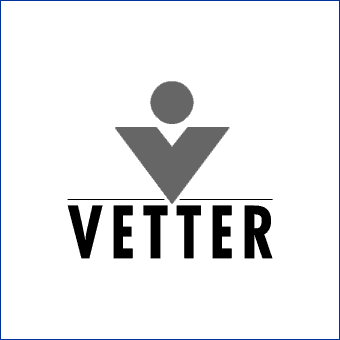The Burrill Report
Just months after paying $11 billion to acquire Pharmasset and gain rights to its key compound (now called GS-7977) for the treatment of Hepatitis C, Gilead has reported that the compound failed to suppress the virus in mid-stage trials. Ten patients were randomized to this particular arm of the trial and data had become available for eight of those patients. Of the eight patients with genotype 1, the most common form of the virus, six patients relapsed within four weeks after stopping the 12-week regimen. The remaining two patients have not yet relapsed but are currently only two weeks post-treatment. The results of the trial pushed shares of Gilead down more than 15 percent by midday trading.
Vivus’ obesity drug Qnexa may cause long-term health problems in overweight and obese patients, according to a panel of drug reviewers. The U.S. Food and Drug Administration plans to ask the advisory panel to consider whether the drug’s benefits in helping patients lose weight outweigh its risks of birth defects and heart problems. The FDA has already rejected the diet pill once before, citing safety issues in its October 2010 ruling. Vivus has resubmitted the drug with additional follow-up data and was hoping for a better outcome this time around. The FDA is expected to make its final decision on Qnexa in April.
Roche and its U.S. unit, Genentech, are warning doctors, hospitals and patient groups that a counterfeit version of its cancer drug, Avastin, has been found in the U.S. drug supply. Tests of the counterfeit vials showed that they didn’t contain any of the active ingredients of Avastin. “We are working with the U.S. Food and Drug Administration and law enforcement to aid their evaluations, determine the source of the counterfeit drug, and prevent its further distribution,” Roche and Genentech said in a statement. “The counterfeit product is not safe or effective and should not be used.” The FDA has so far notified 19 medical practices about the phony Avastin vials, which can be identified by their labels. The counterfeit labels are in French, have lot numbers that begin with a letter, rather than a number, and are labeled “Roche,” while the genuine drug carries a Genentech label.
Chelsea Therapeutics’ shares plunged after the company revealed that the U.S. Food and Drug Administration raised concerns over the safety and efficacy of its experimental low-blood pressure drug Northera in briefing documents supplied to the company. The drug is scheduled to face the FDA’s Cardiovascular and Renal Drugs Advisory Committee February 23 and says it felt it was in its best interest to advise its shareholders that it had received FDA briefing documents. The stock dropped 36 percent in a single day, effectively erasing all its gains over the past year.
The National Institute for Health and Clinical Excellence, Britain’s healthcare cost-effectiveness body has asked Roche to provide more data on its lung cancer drug, Tarceva. NICE is considering Tarceva as a first-line therapy for the cancer, but has no trial data available to directly compare it to AstraZeneca’s Iressa. Tarceva is already recommended as a second-line treatment for patients suffering from non-small-cell lung cancer, but Roche had been hoping to gain wider approval for the pill in Britain. NICE has requested that Roche provide an updated cost-effectiveness analysis of Tarceva compared with Iressa before they will reconsider it.
Karo Bio has decided to nix its lead program for the anti-cholesterol Eprotirome. The drug had been in late-stage trials but proved to be too unsafe. A toxicology study involving dogs showed that animals on both high and low doses of the drug suffered cartilage damage after one year of exposure, while animals in the placebo group suffered no such side effects. The results were enough to prompt Karo to discontinue the program, which has cost the company about $15 million to fund through 2011. Though Karo says it has enough cash to keep operations afloat for at least the next year, it has undertaken staff cuts and other measures in an attempt to conserve cash.
The National Institute for Health and Clinical Excellence rejected GlaxoSmithKline’s Tyverb and Roche’s Herceptin in certain postmenopausal breast cancer patients. In new draft guidance the agency said that the overall survival benefit from the drugs alongside aromatase inhibitors as a first-line treatment for patients whose breast cancer has spread elsewhere in the body remains uncertain. While both drugs can reduce the growth and spread of metastatic breast cancer when taken alongside the inhibitors, “the extent that these treatments can improve overall survival appears to be small or undefined,” said NICE chief executive Sir Andrew Dillon.
February 17, 2012
http://www.burrillreport.com/article-gilead_drops_on_poor_clinical_trials_results_of_pharmasset_drug.html
TRIALS AND TRIBULATIONS
Gilead Drops on Poor Clinical Trials Results of Pharmasset Drug
The weekly round-up of failed trials, missed targets, and other business mishaps.[Please login to post comments]

- The March 2012 Issue of The Burrill Report
Read More - Ceres IPO Brings in $65M
Agbiotech goes public amid difficult times for bioenergy companies. Read More - Will Obama's Budget Hinder Innovation?
Podcast: February 20, 2012 Read More - Biogen Idec Commits Up to $487.5M to Acquire Stromedix
Small company hits a home run with fibrosis-focused deal. Read More - Feds Recoup $4.1 Billion in Healthcare Fraud
Task forces employ data analysis to target suspect claims. Read More - Amyris Scales Back
Shares tumble as company finds scaling up more difficult than expected. Read More - Proposed FDA Budget Leans on Industry
Obama seeks $4 billion in savings by trimming exclusivity period. Read More - Despite Cuts, Big Pharma Says It’s Still Overstaffed
Study finds companies plan reductions to sales groups of up to 15 percent in the year ahead. Read More - Rusnano Invests in Novel Diagnostics
Paris-based Magnisense will produce its next-generation systems in Russia. Read More - Developing Countries Lead Adoption Rate of Biotech Crops
Spurned by Europe and Japan, genetically modified crops are being embraced by the world’s small resource-poor farmers. Read More



.gif)